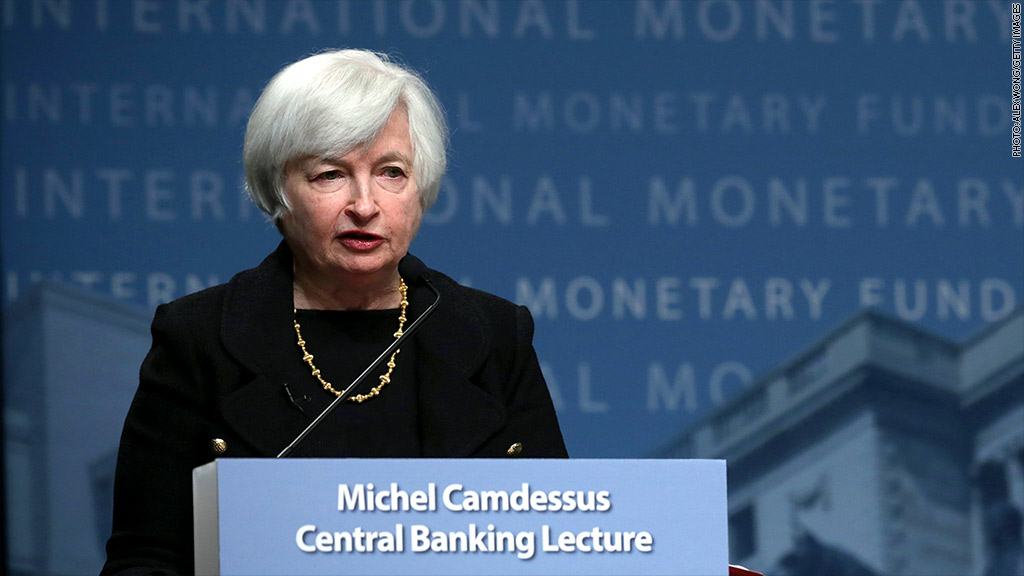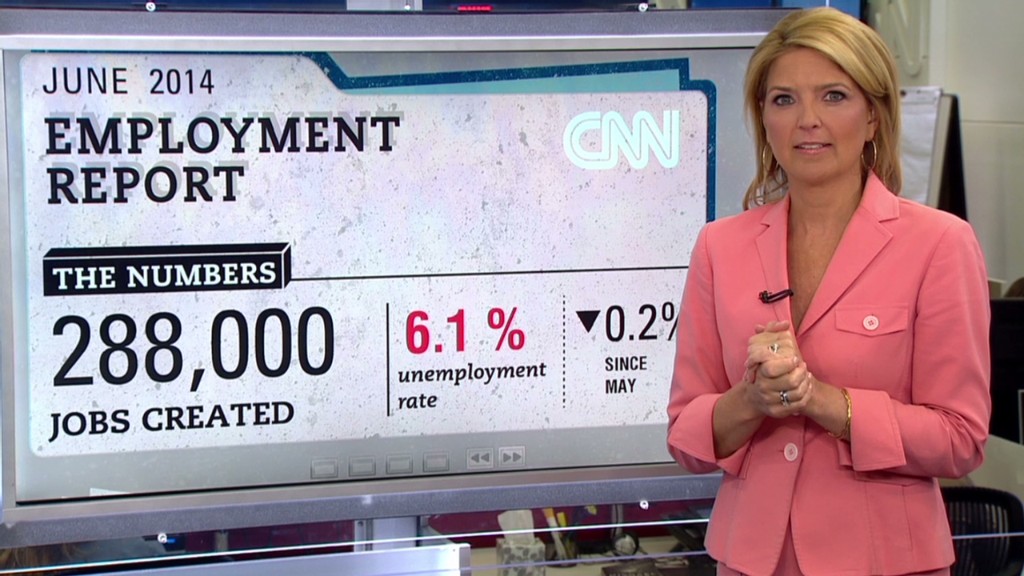
All things must die.
In the case of the Federal Reserve's unprecedented stimulus program that has been a big driver of the five-year stock rally, the end is finally near.
In minutes released from its June meeting, the central bank said that if the economy improves as it expects, its massive bond buying program will fully wind down following its meeting in October.
The Fed's intention to pull back, or "taper," its stimulus is a sign that it believes the economy is on the right track. That's the good news.
Related: Happy to have a #newjob
The bond purchases are only one measure helping to boost the economy, but the curtailment is being watched closely as a sign of when the Fed could raise interest rates. The Fed intends to be very clear and give plenty of signals about rate hikes, according to the minutes.
The Fed is currently buying $25 billion in monthly bonds, down from $85 billion last year.
The minutes indicate some of the top economists in America believe that activity will pick up in the second half of the year. The Fed did revise its GDP forecast for 2014 down from 2.3% to 2.1%, but many economists have pinned the decline on unusually severe winter weather.
The main question among Fed watchers is when the committee will raise its key federal funds rate, which currently stands between 0% and 0.25%. The minutes didn't give any solid dates, although the Fed tried to reassure the world that it will give a lot of signals well in advance of any rate hike.
"The June unemployment numbers were strong, but not strong enough to abandon course," says Ernest Cecilia, chief investment officer of Bryn Mawr Trust. "Janet Yellen wants to stay on message and be really clear. Any flip flopping will lead to a perception that the Fed doesn't have its act together."
Related: Mortgage rates drop to near 4%

In addition to its massive bond buying program, the Fed's low interest rate policy has been widely credited with driving investors into stocks and reviving the housing market by sending mortgage rates to historic lows.
After the June jobs report, many strategists began forecasting a rate increase sooner than later. Economists at Goldman Sachs (GS), JP Morgan (JPM), Bank of America, (BAC) Citigroup (C), and Capital Economics all moved up their predictions on rate hike timing.
If the market misreads the Fed's timing, it might be bad for stocks as investors flee to safer assets.
But the Fed has been insistent that it plans to keep rates low for some time -- well beyond the end of its bond buying. Its latest "dot plot," poll from its June meeting showed all Fed members except one (there's always one) believe interest rates will remain the same through the end of 2014.
The median prediction for the end of 2015, however, is interest rates above 1%.
Stocks popped after the Fed minutes came out Wednesday afternoon.


